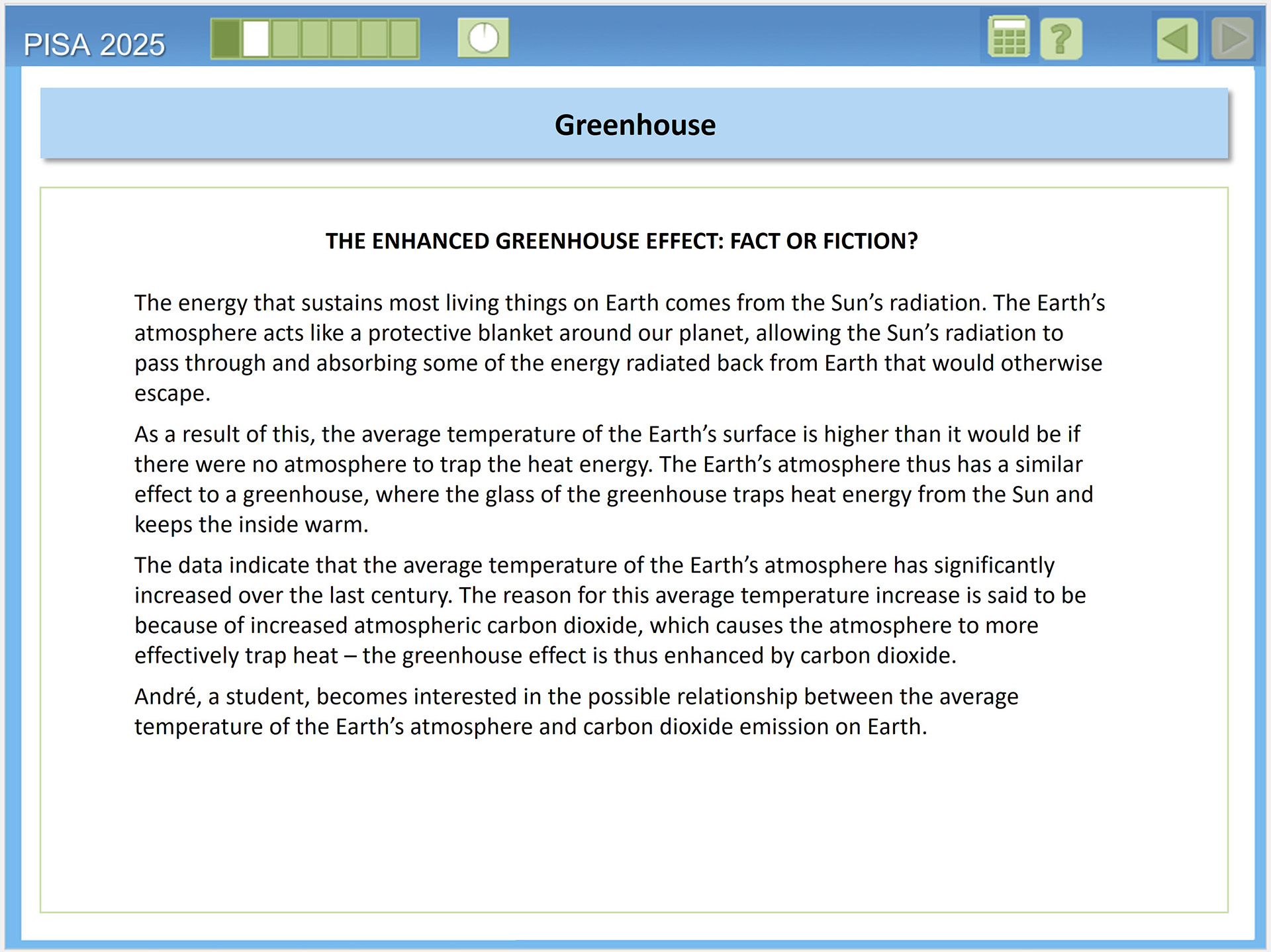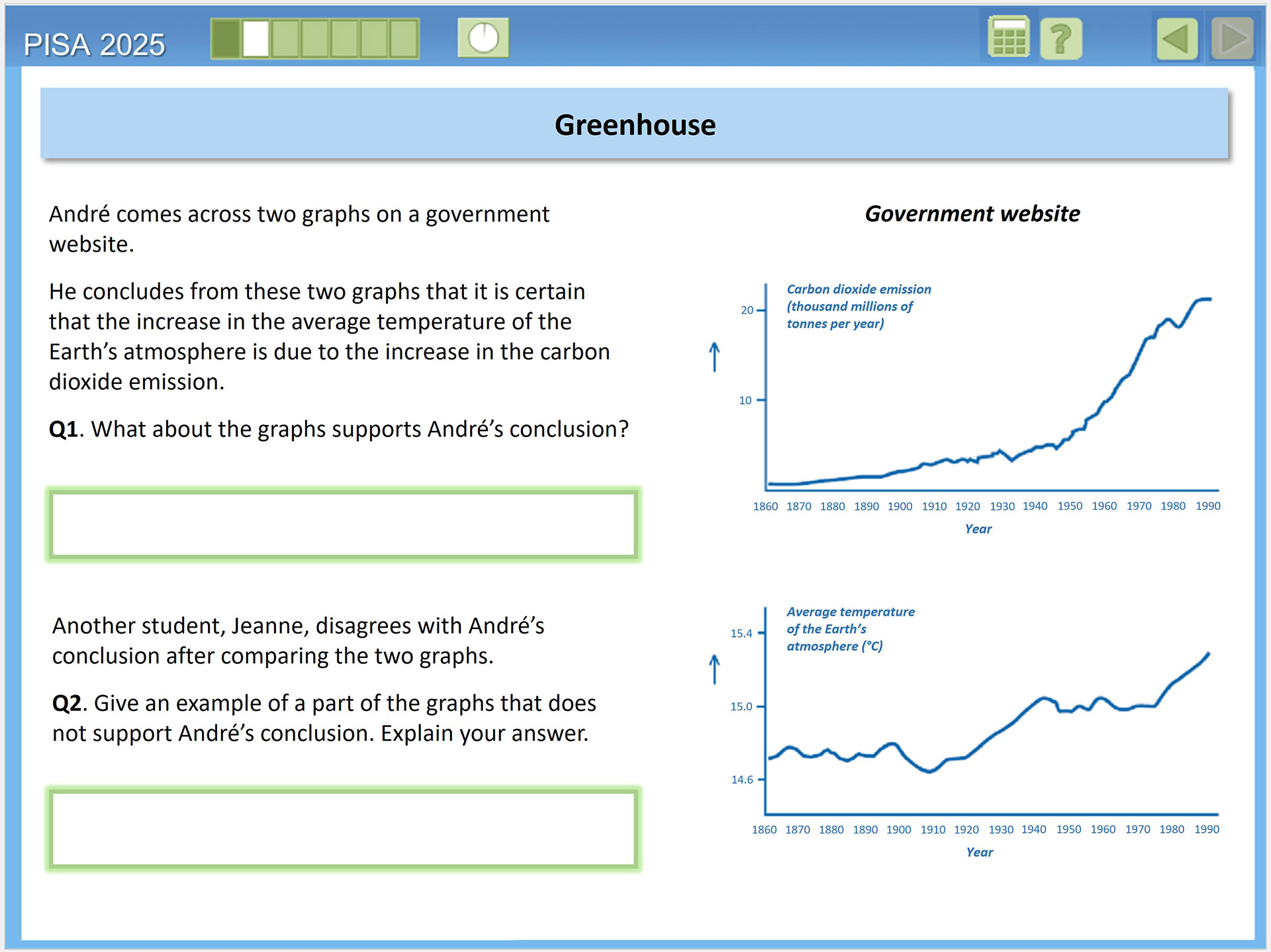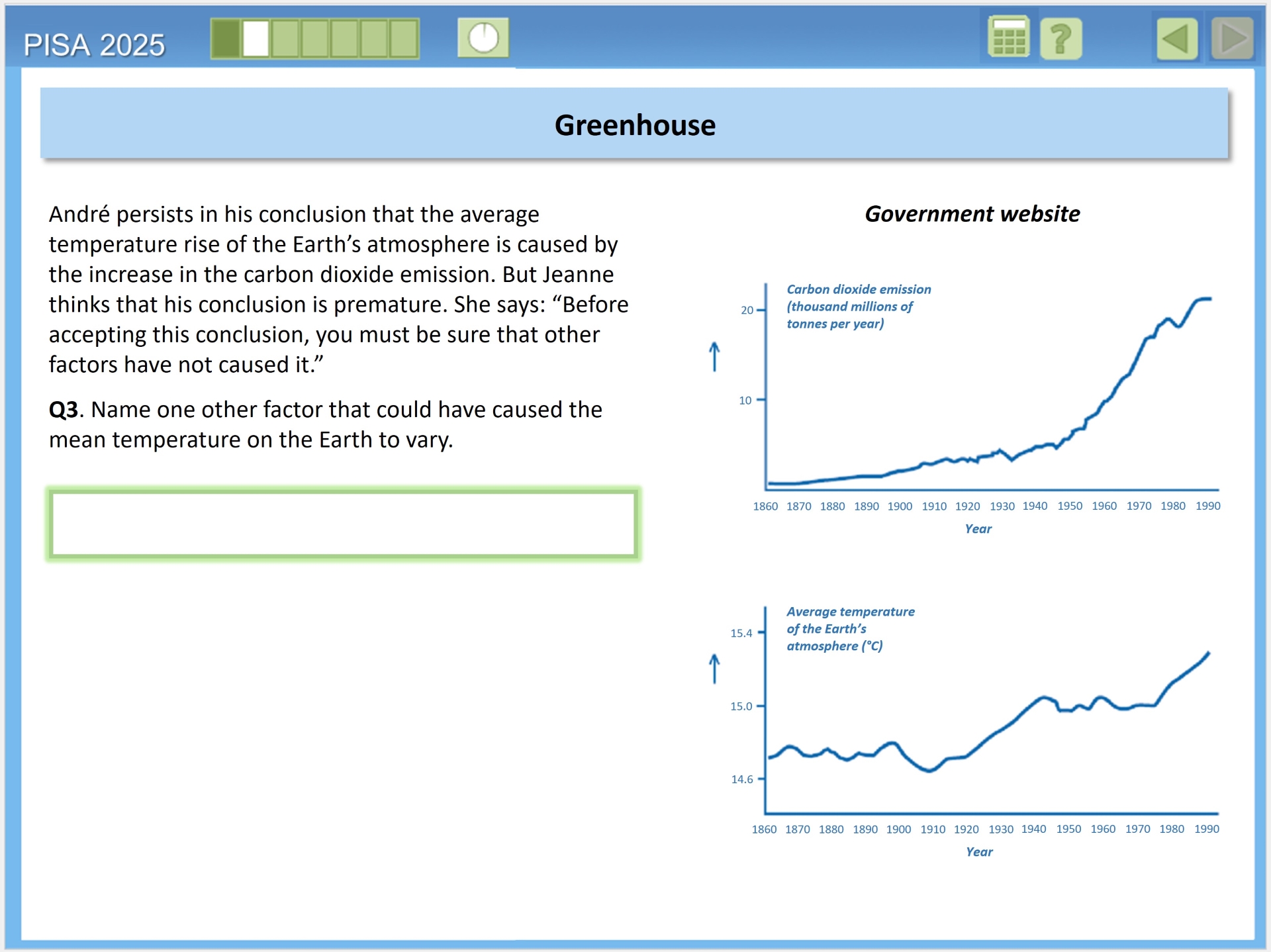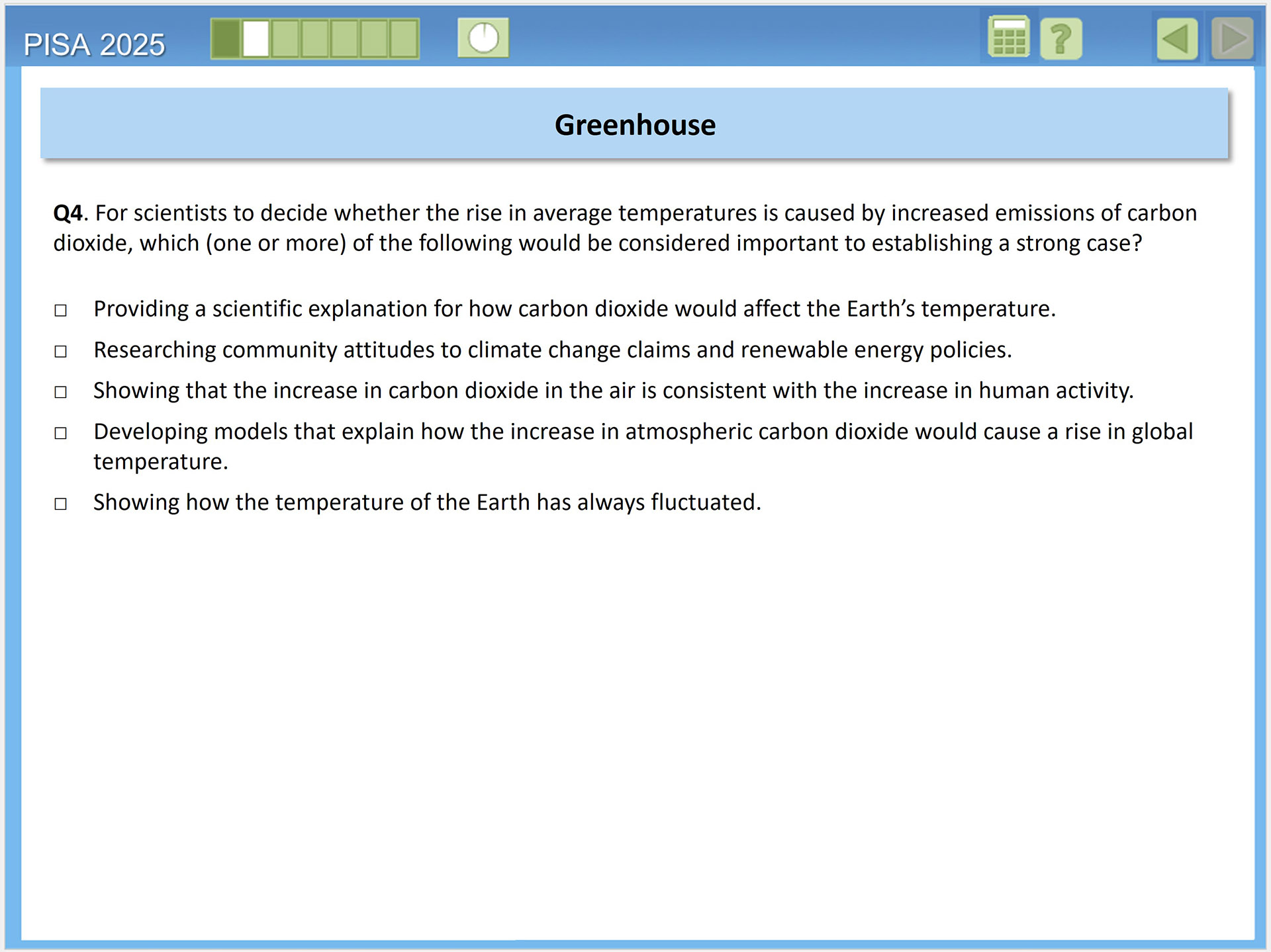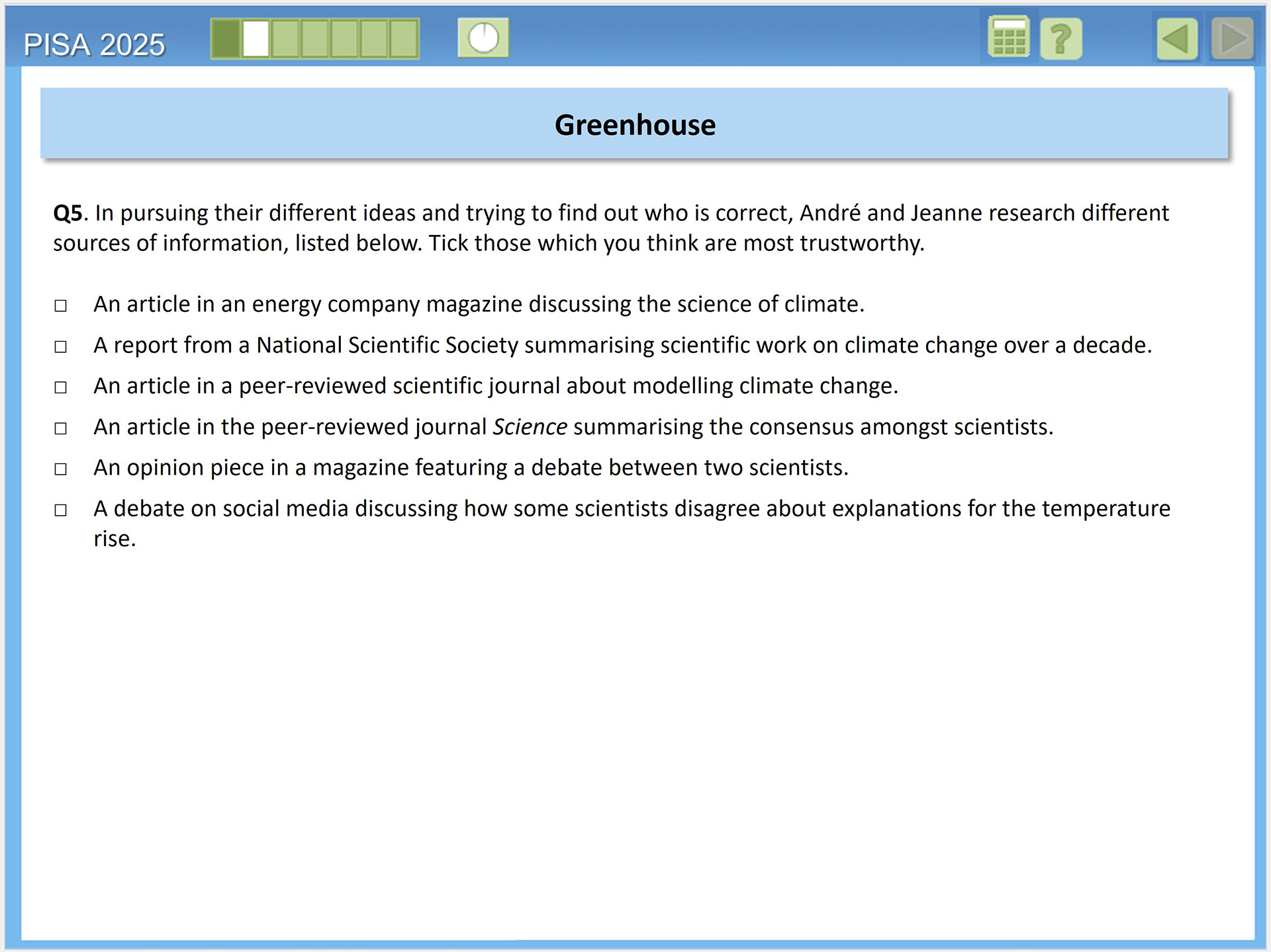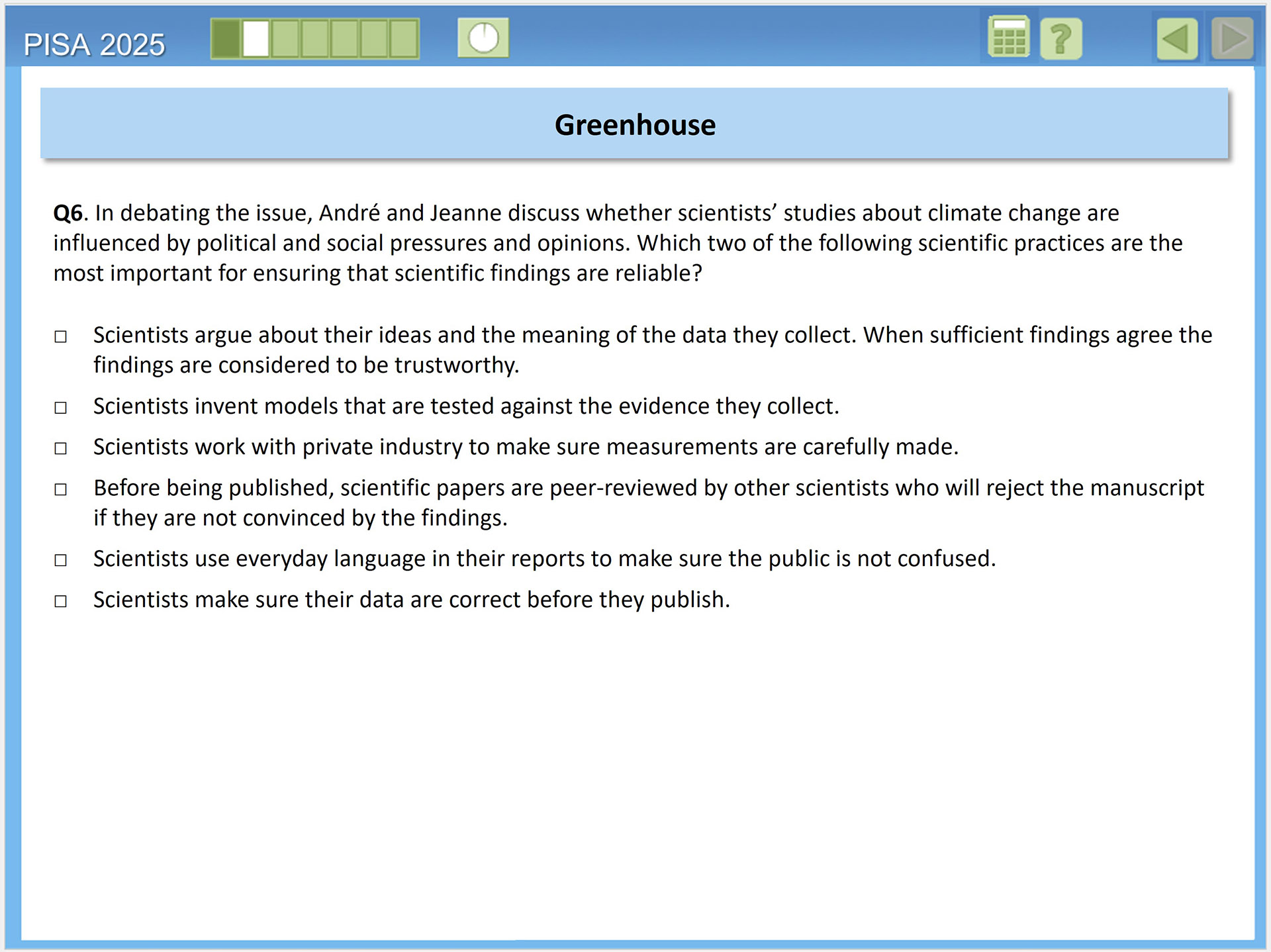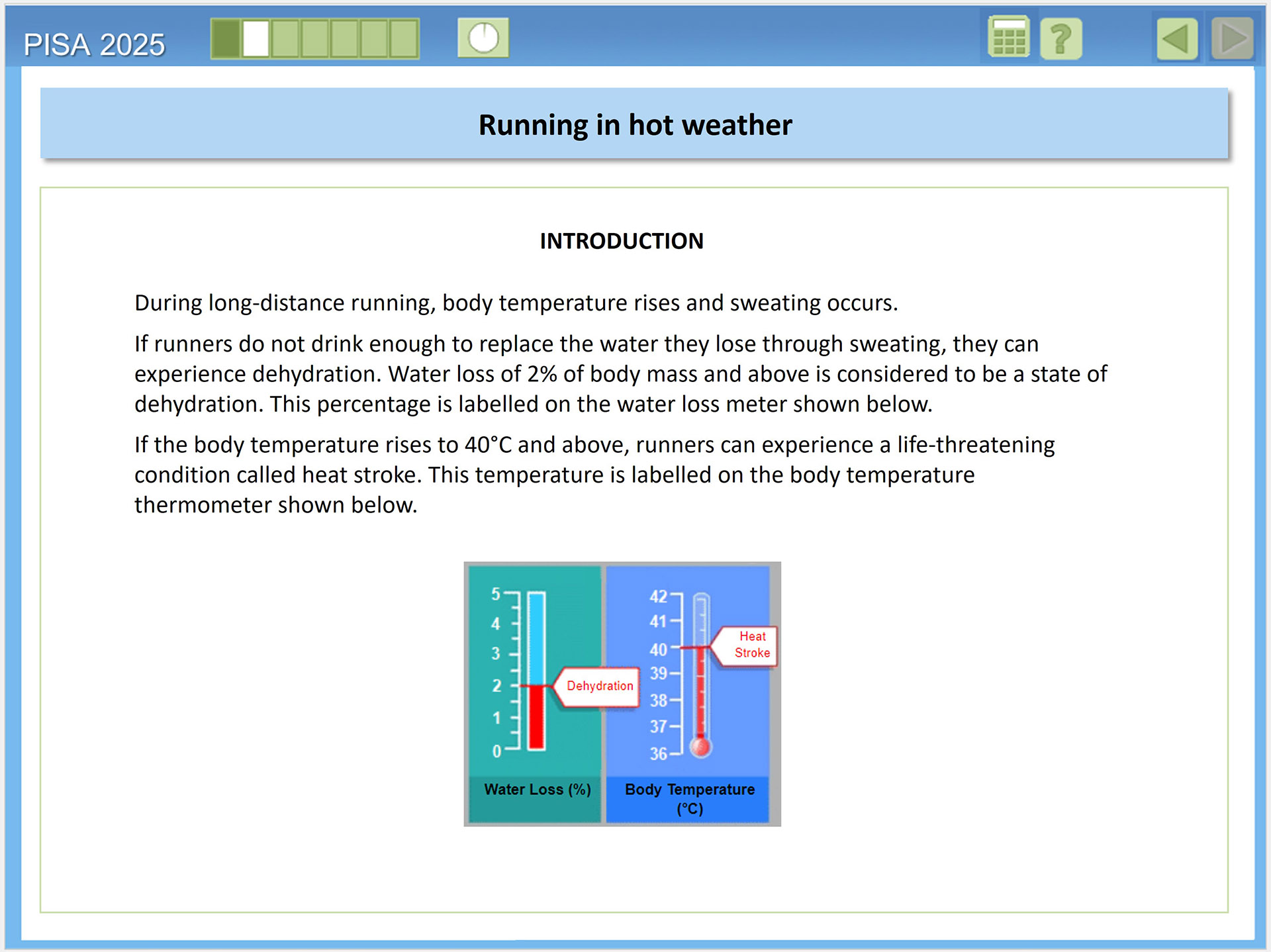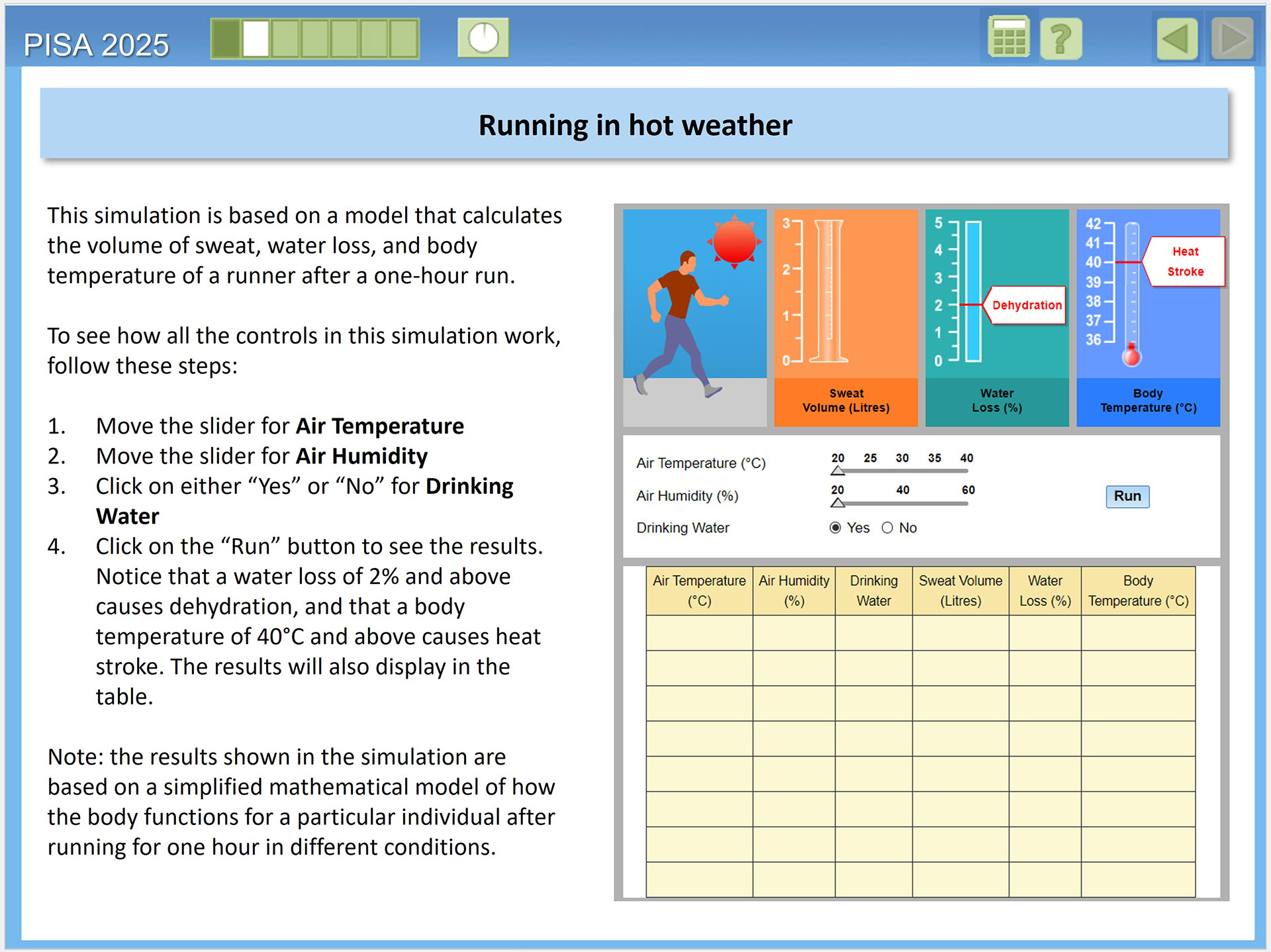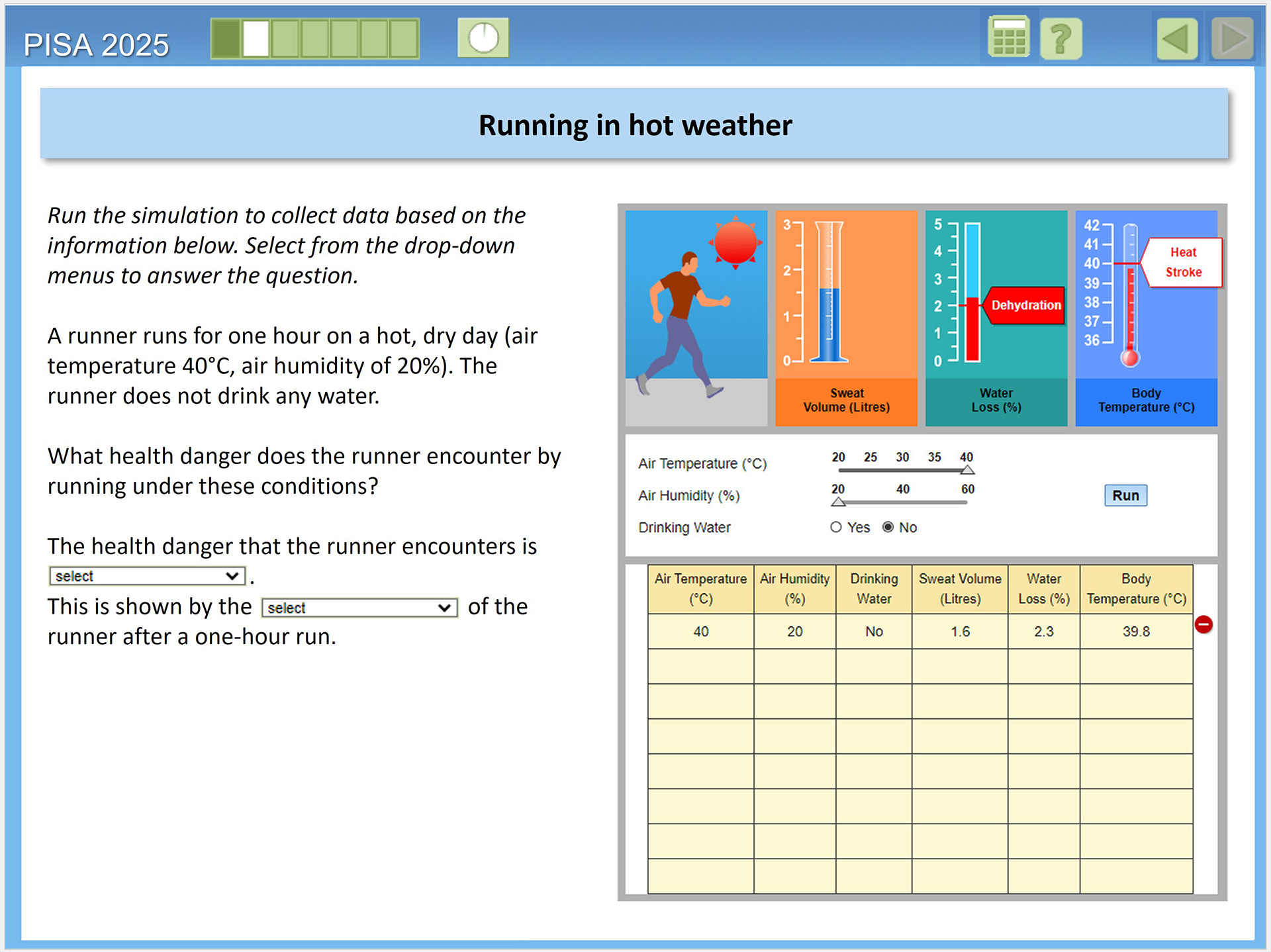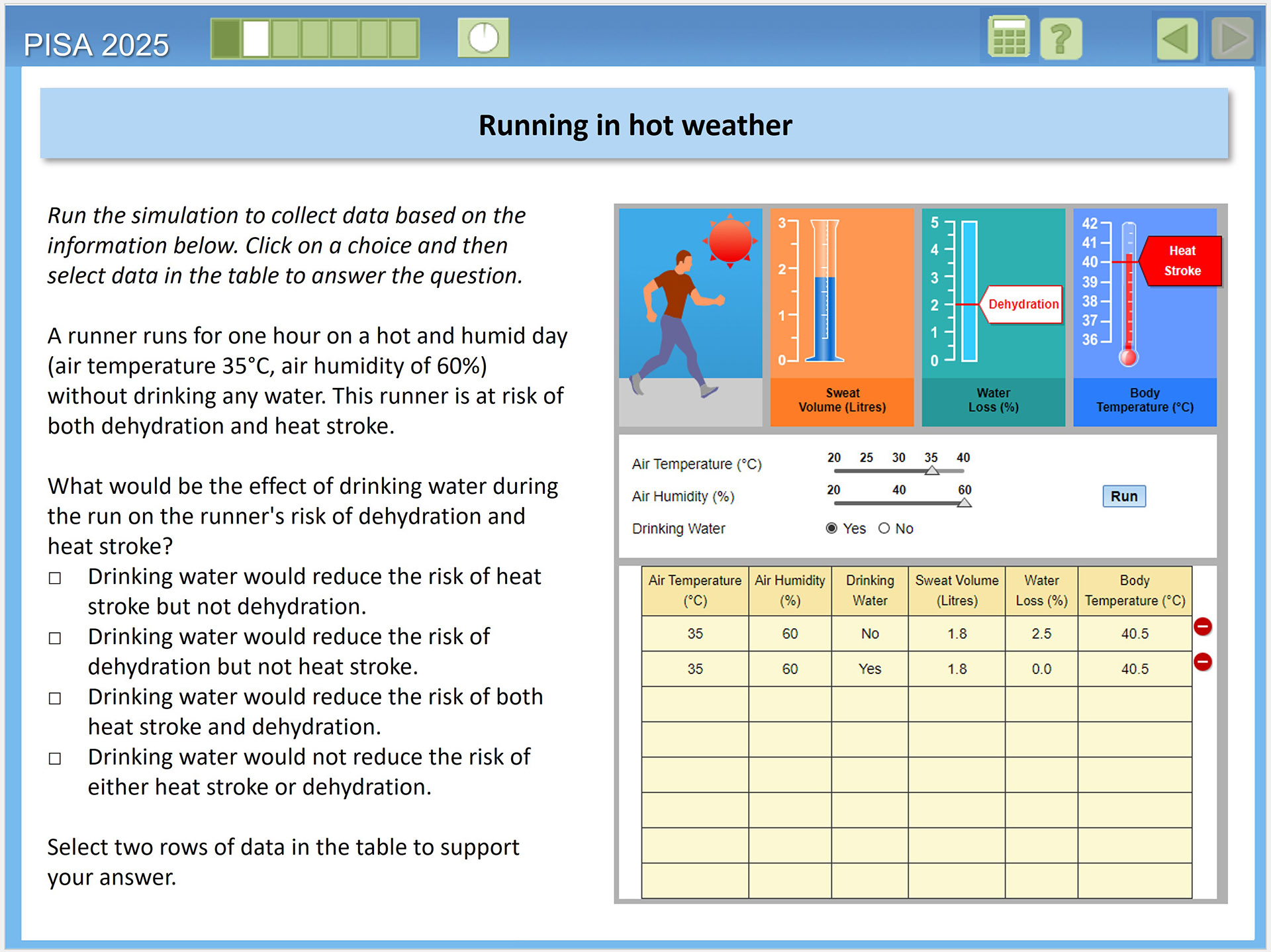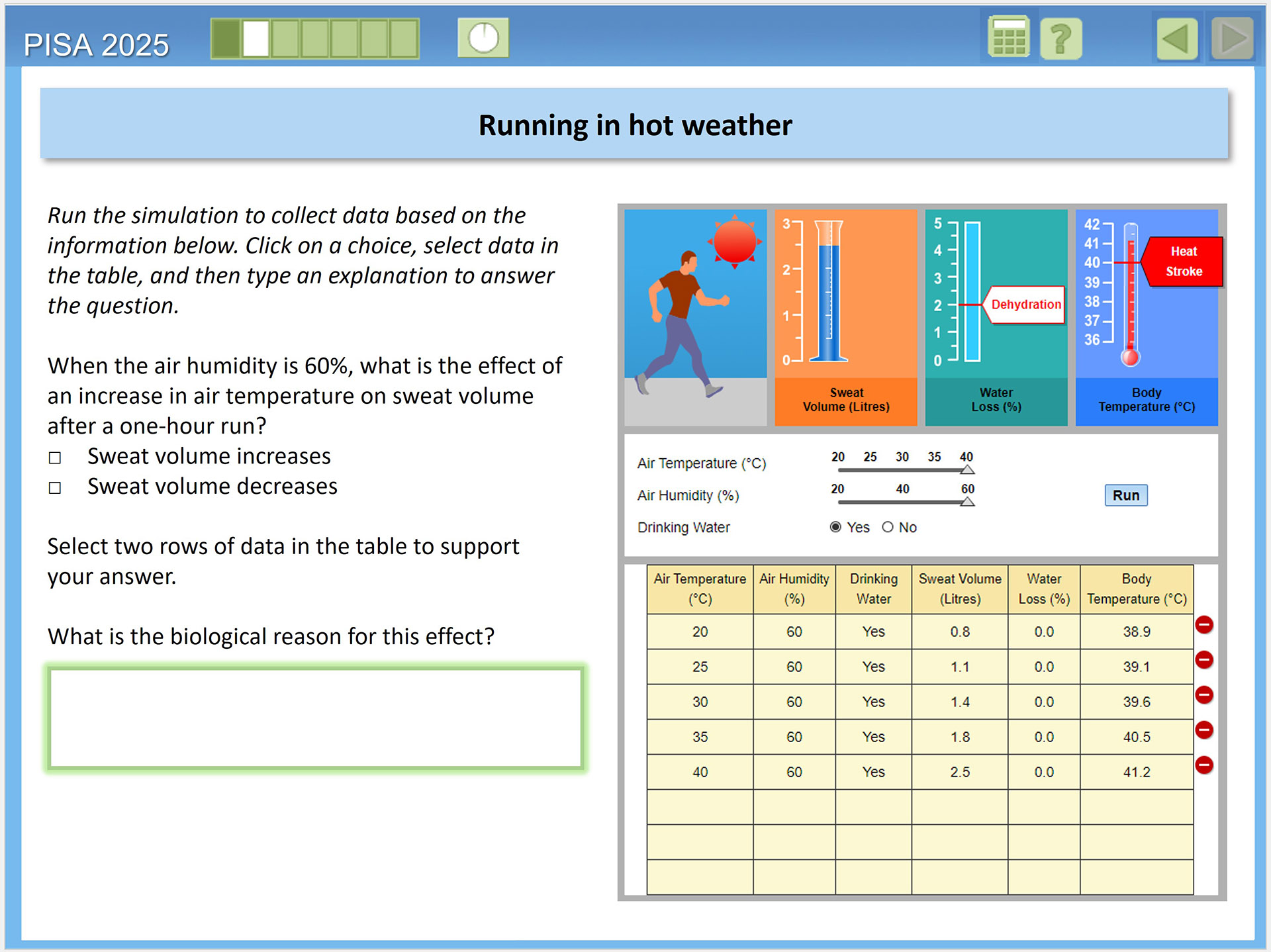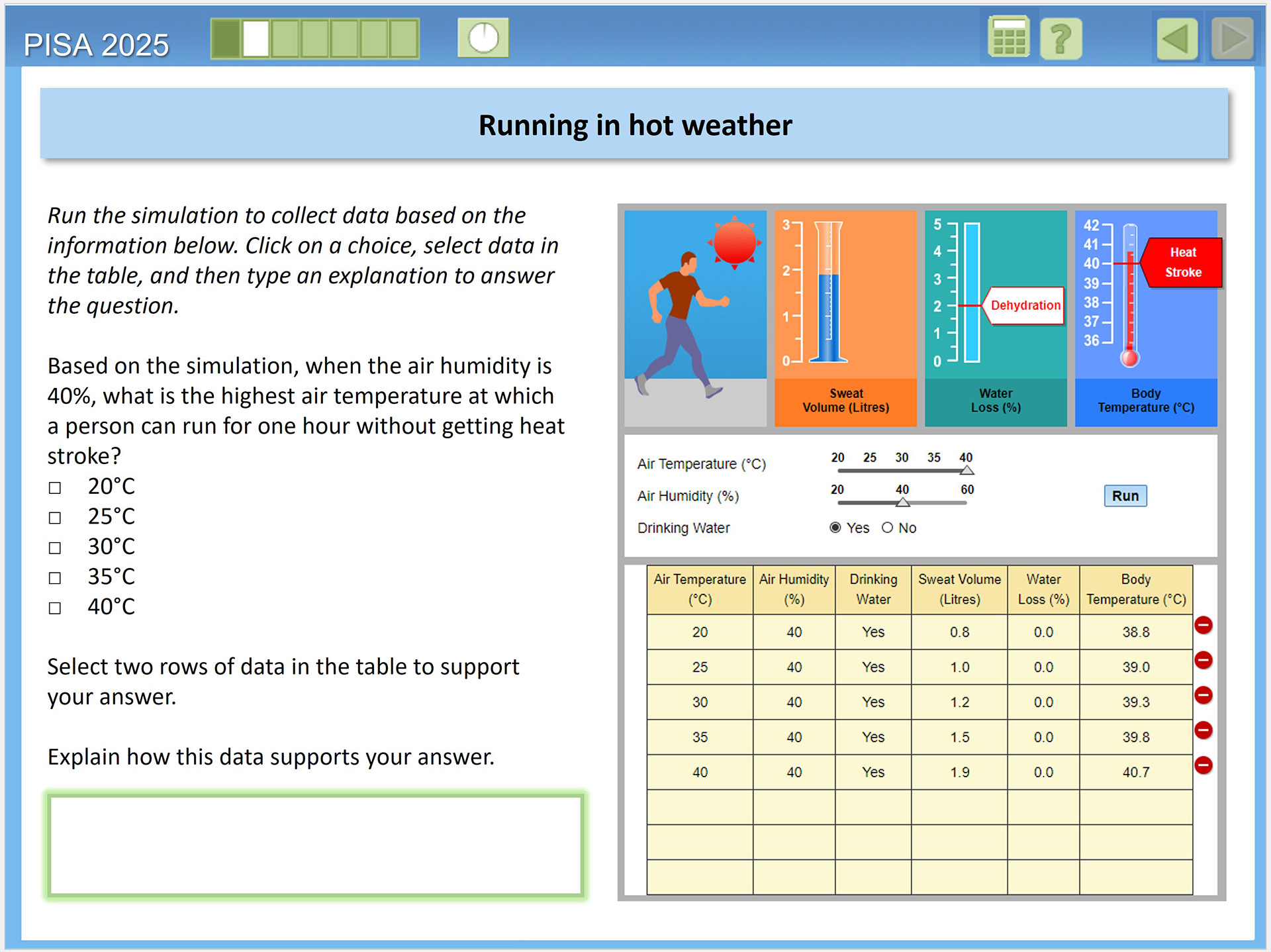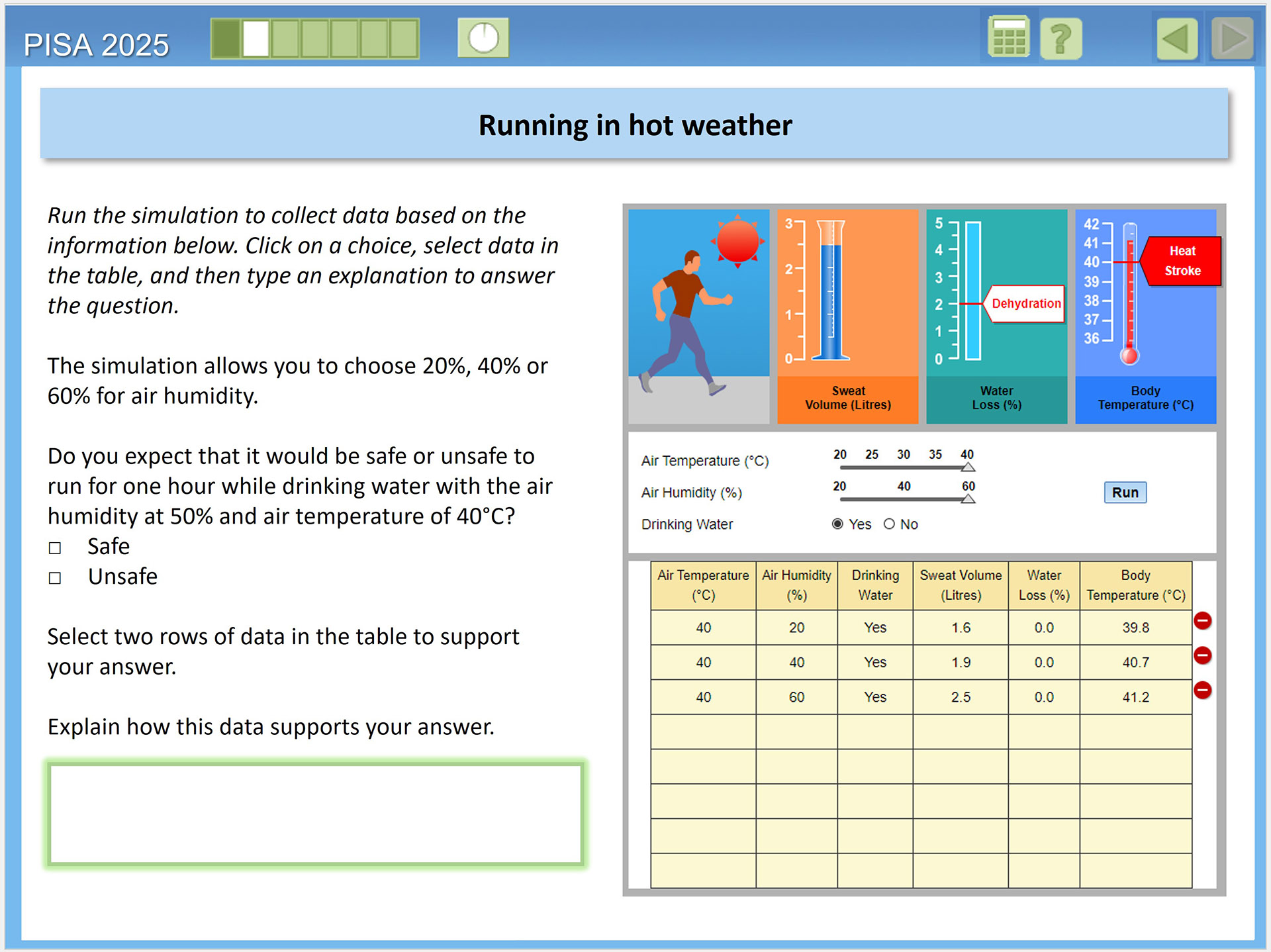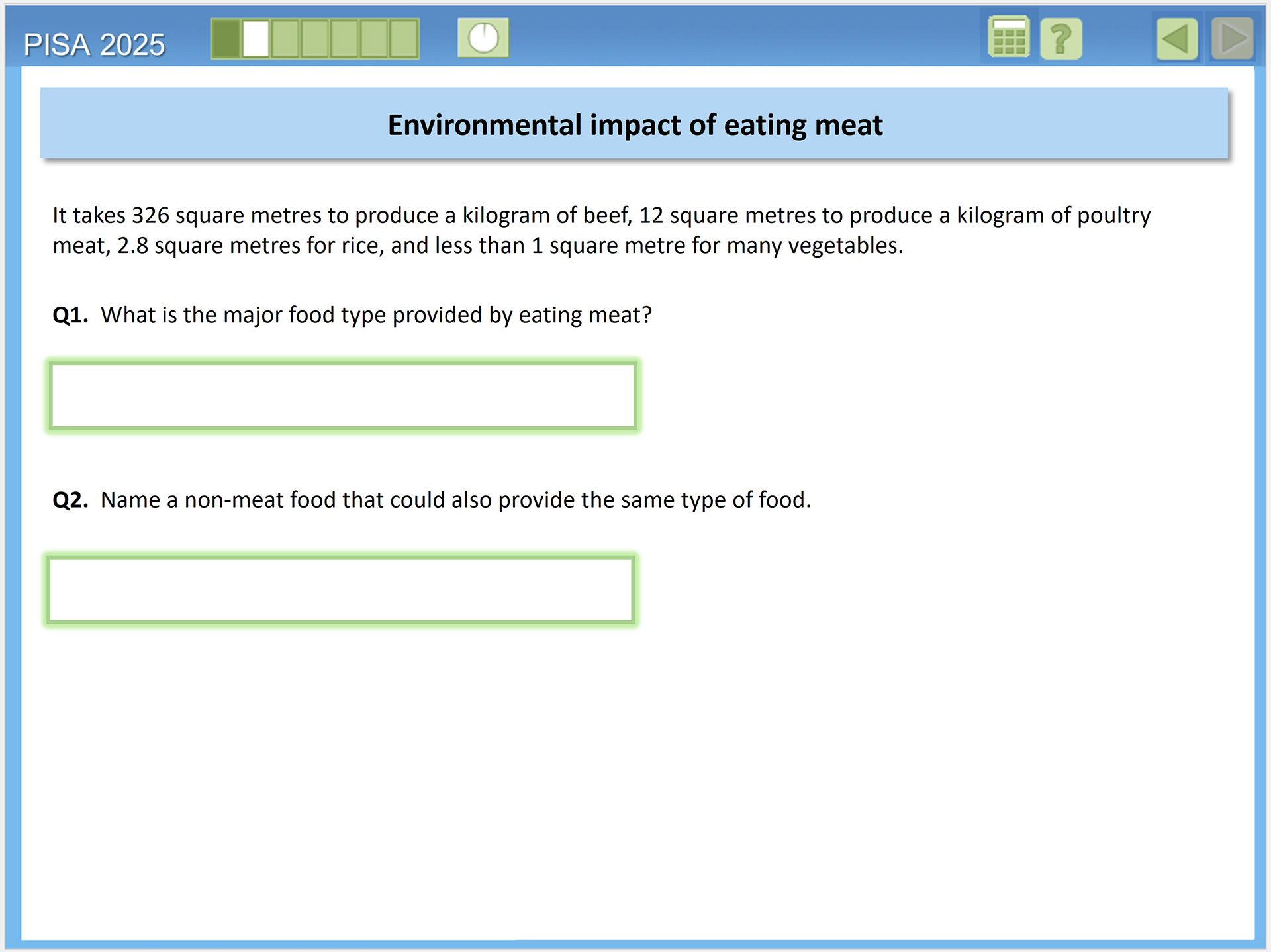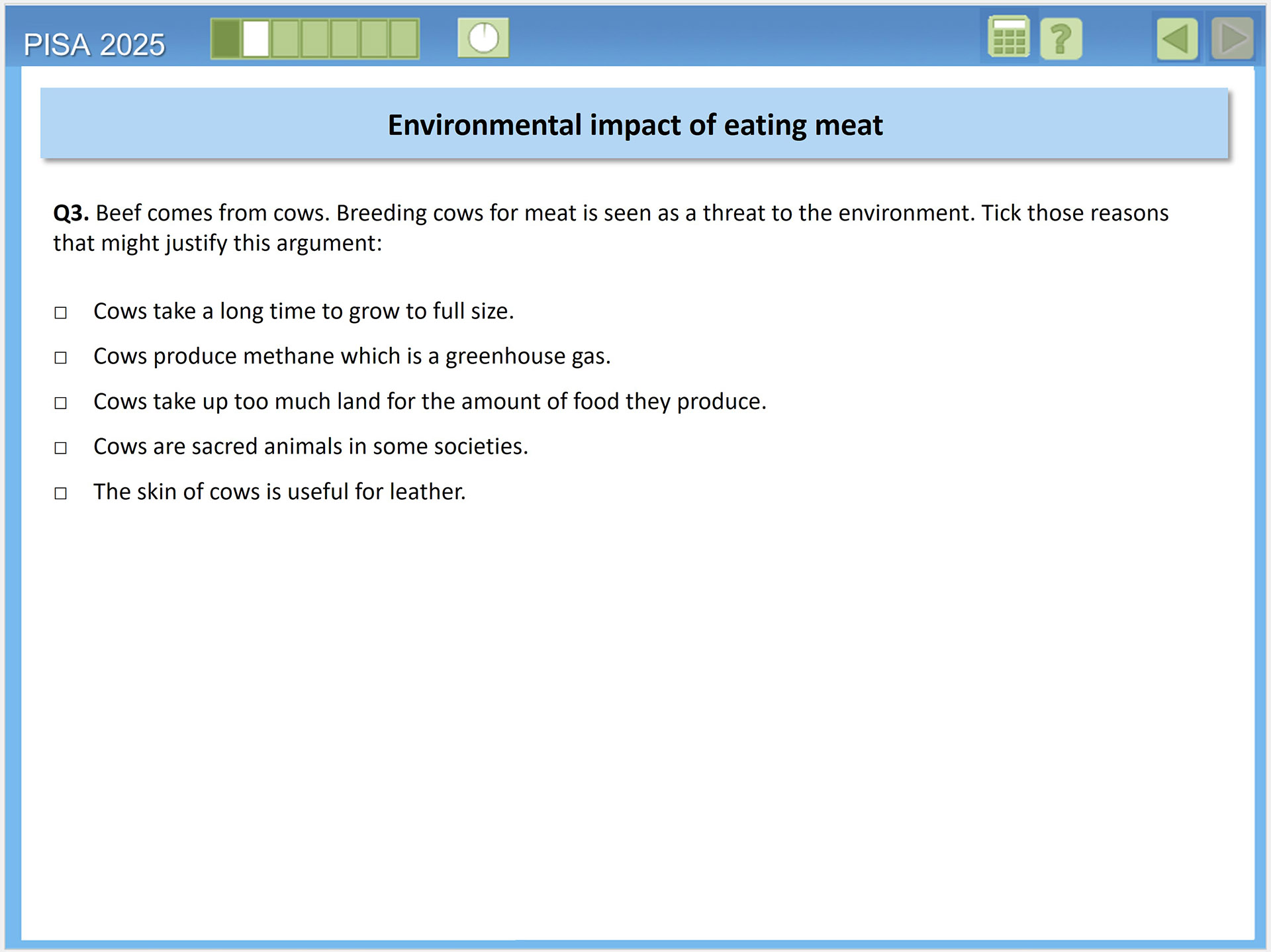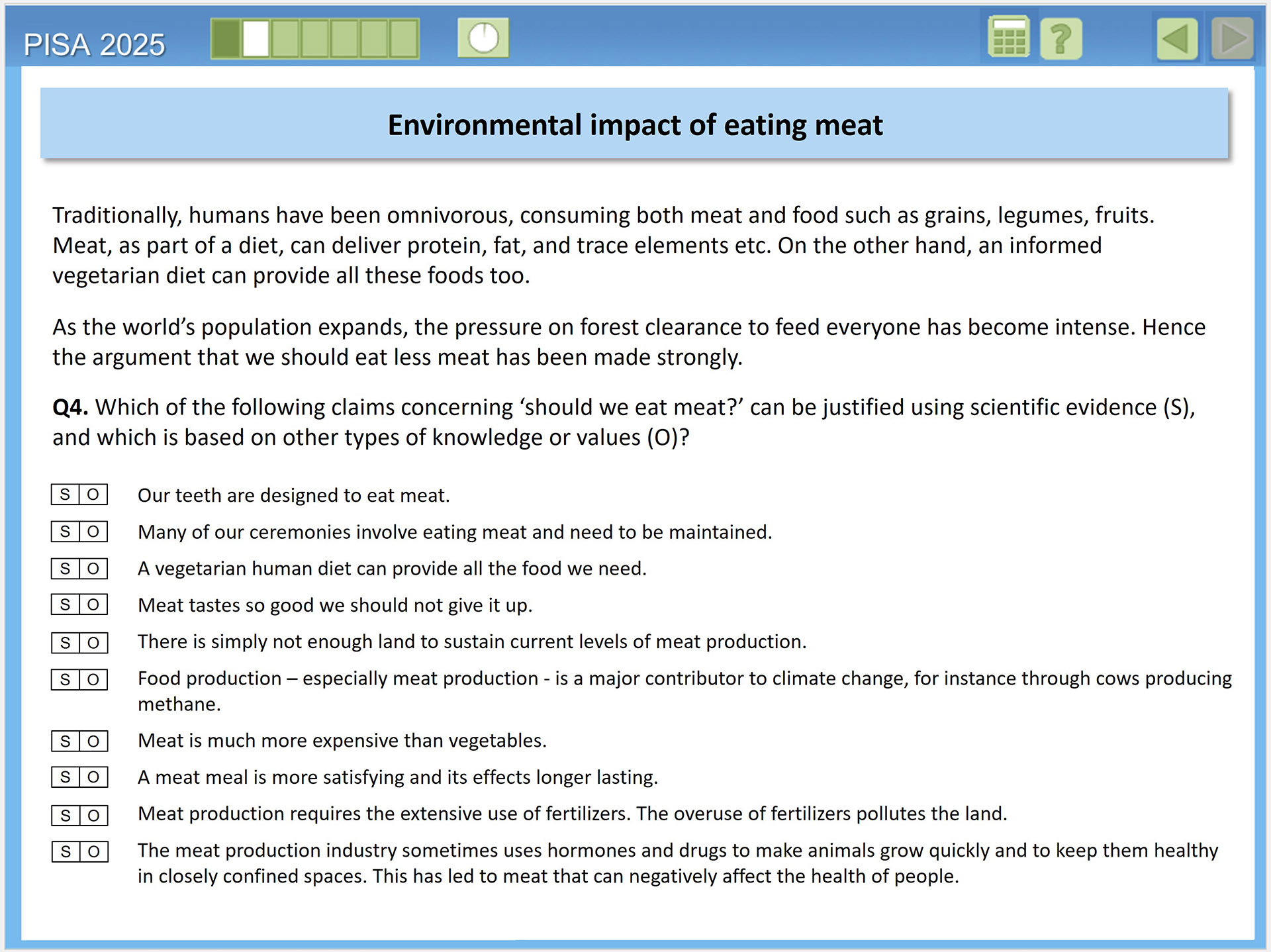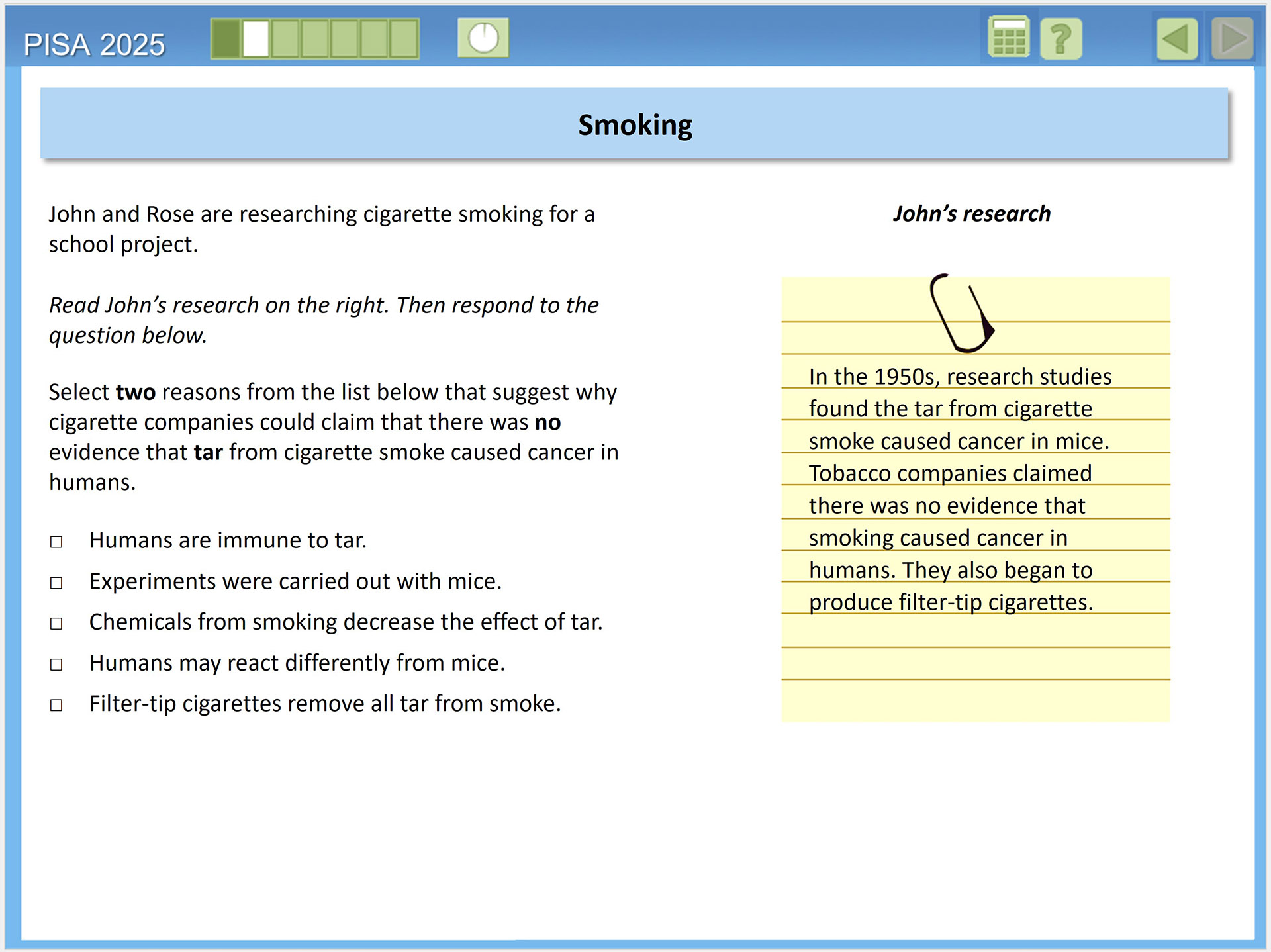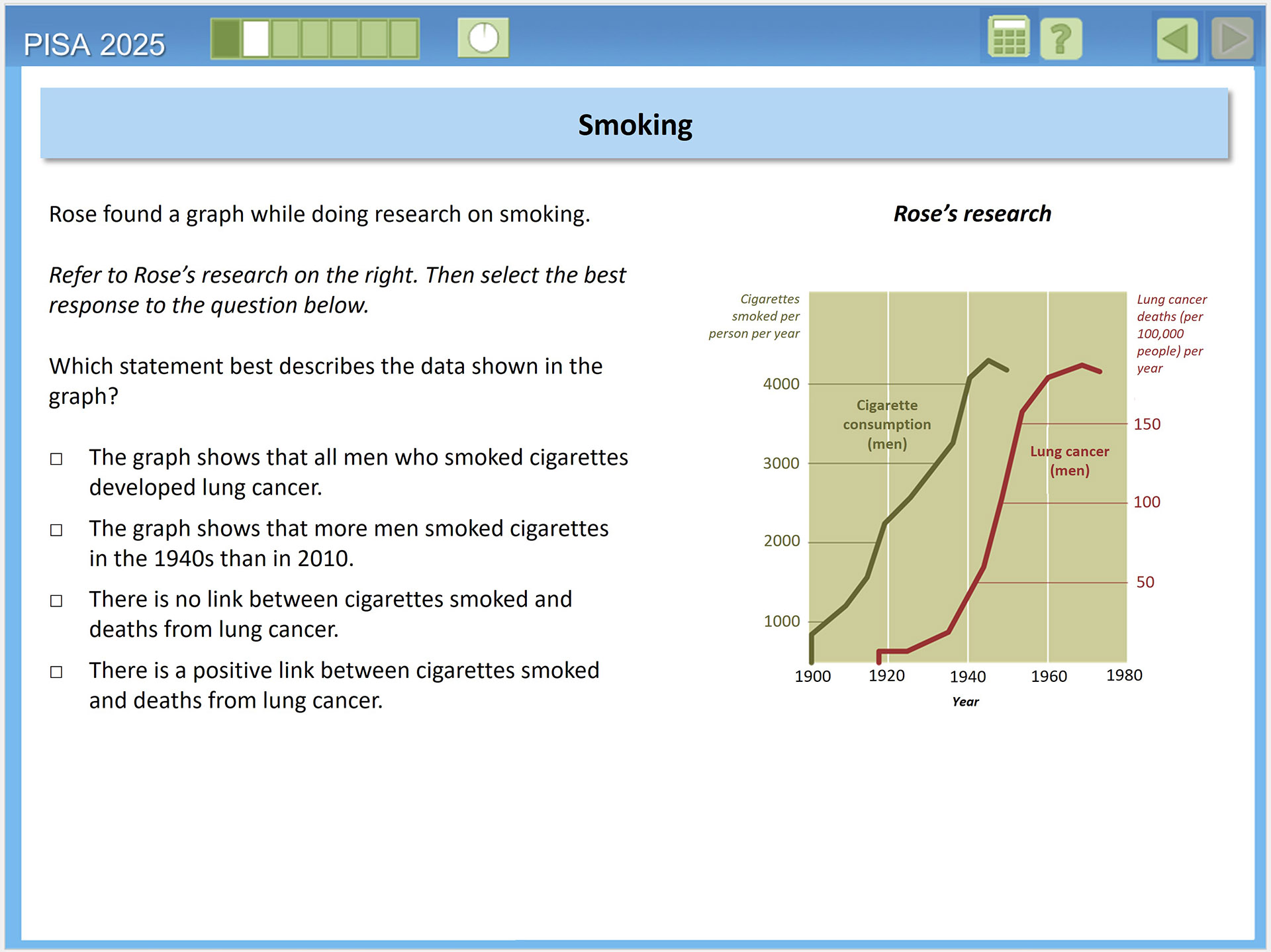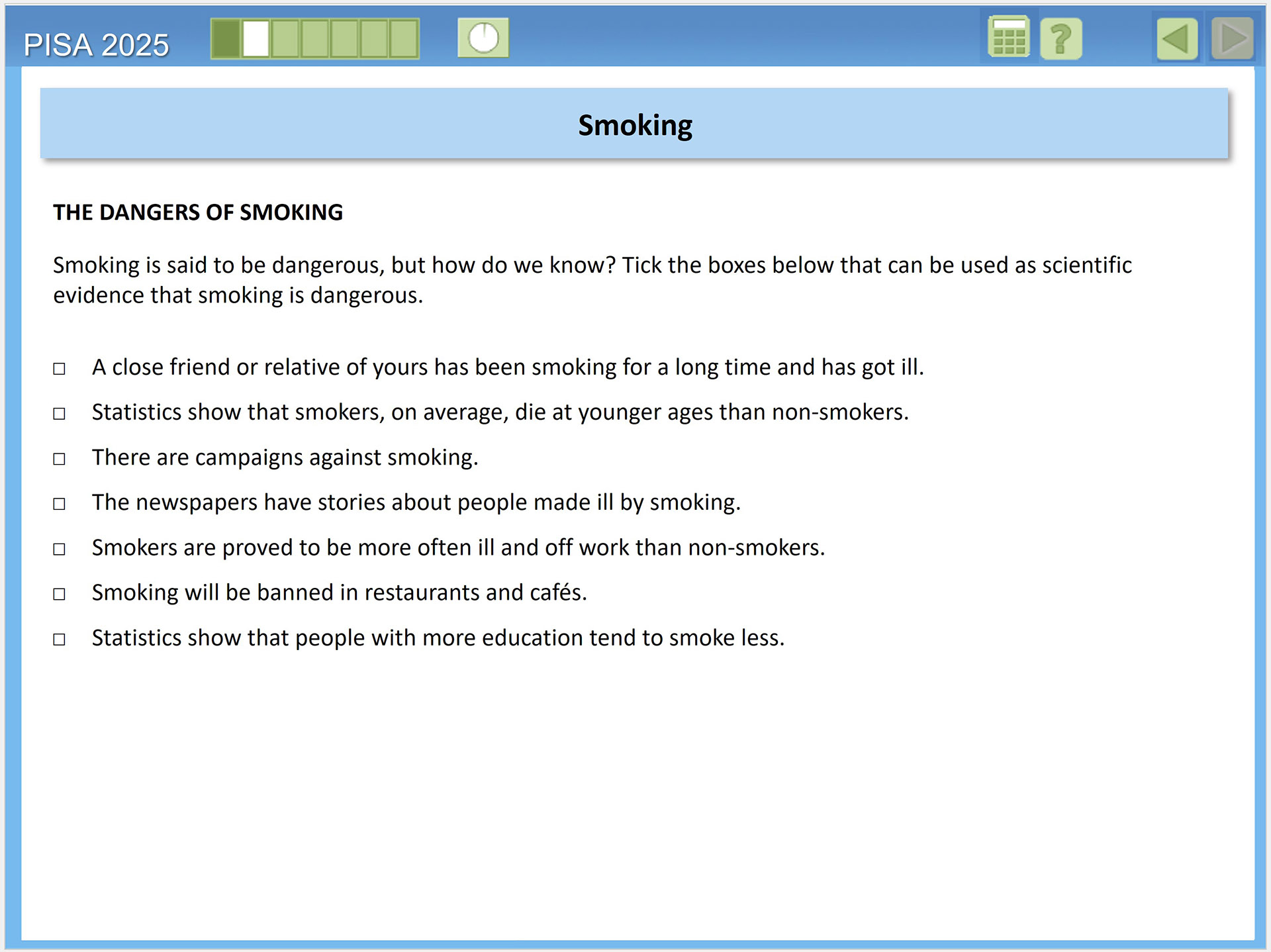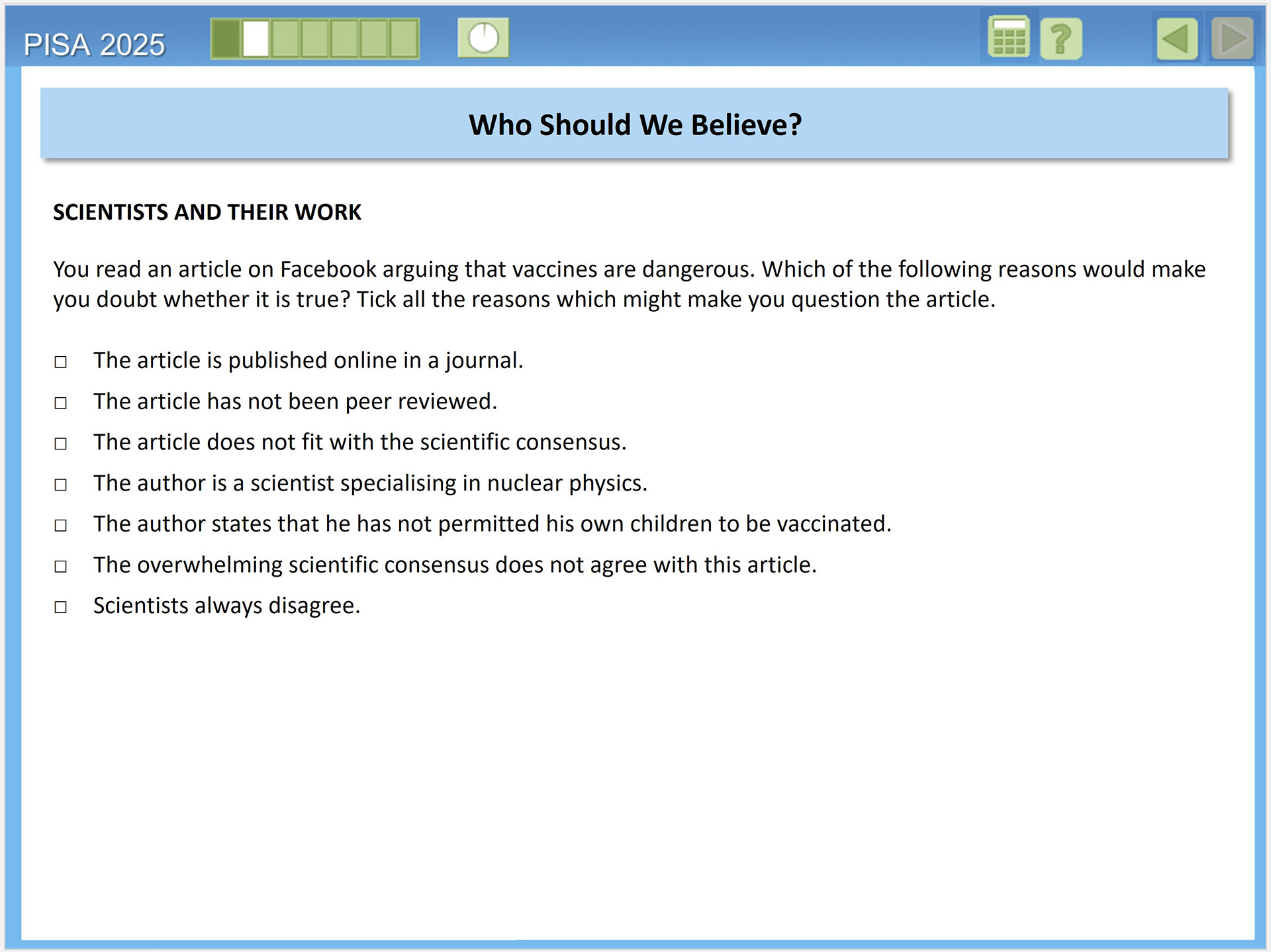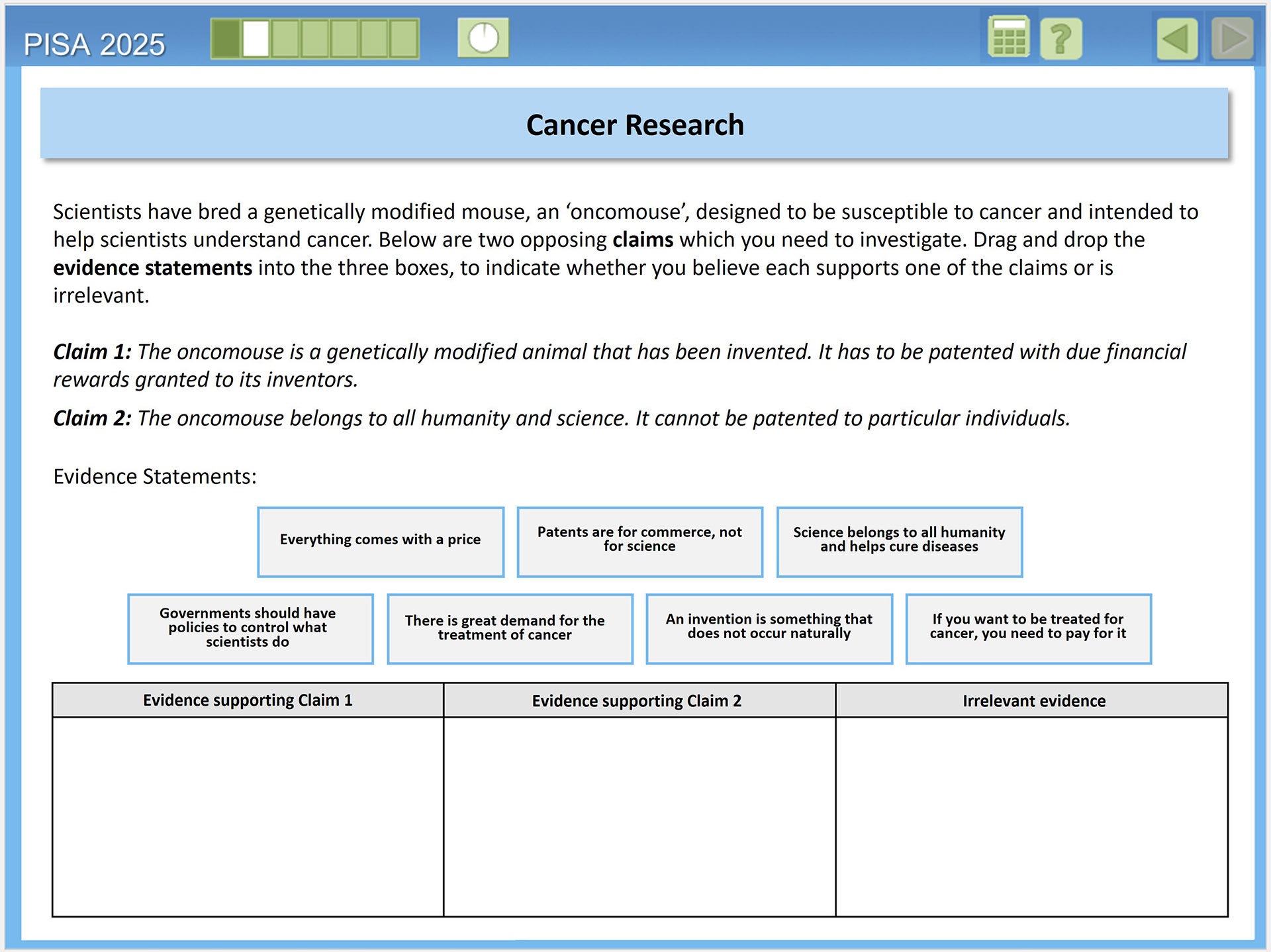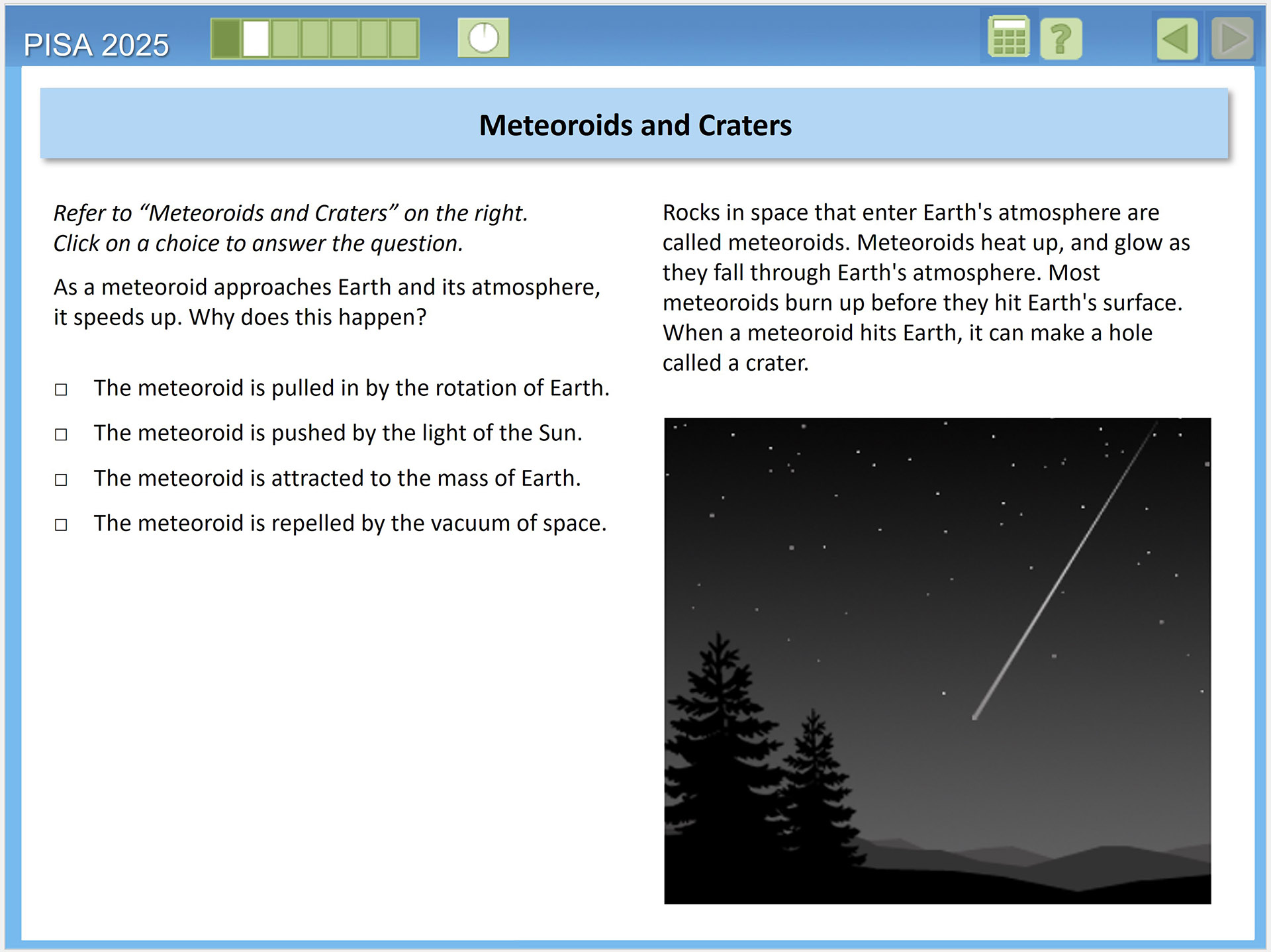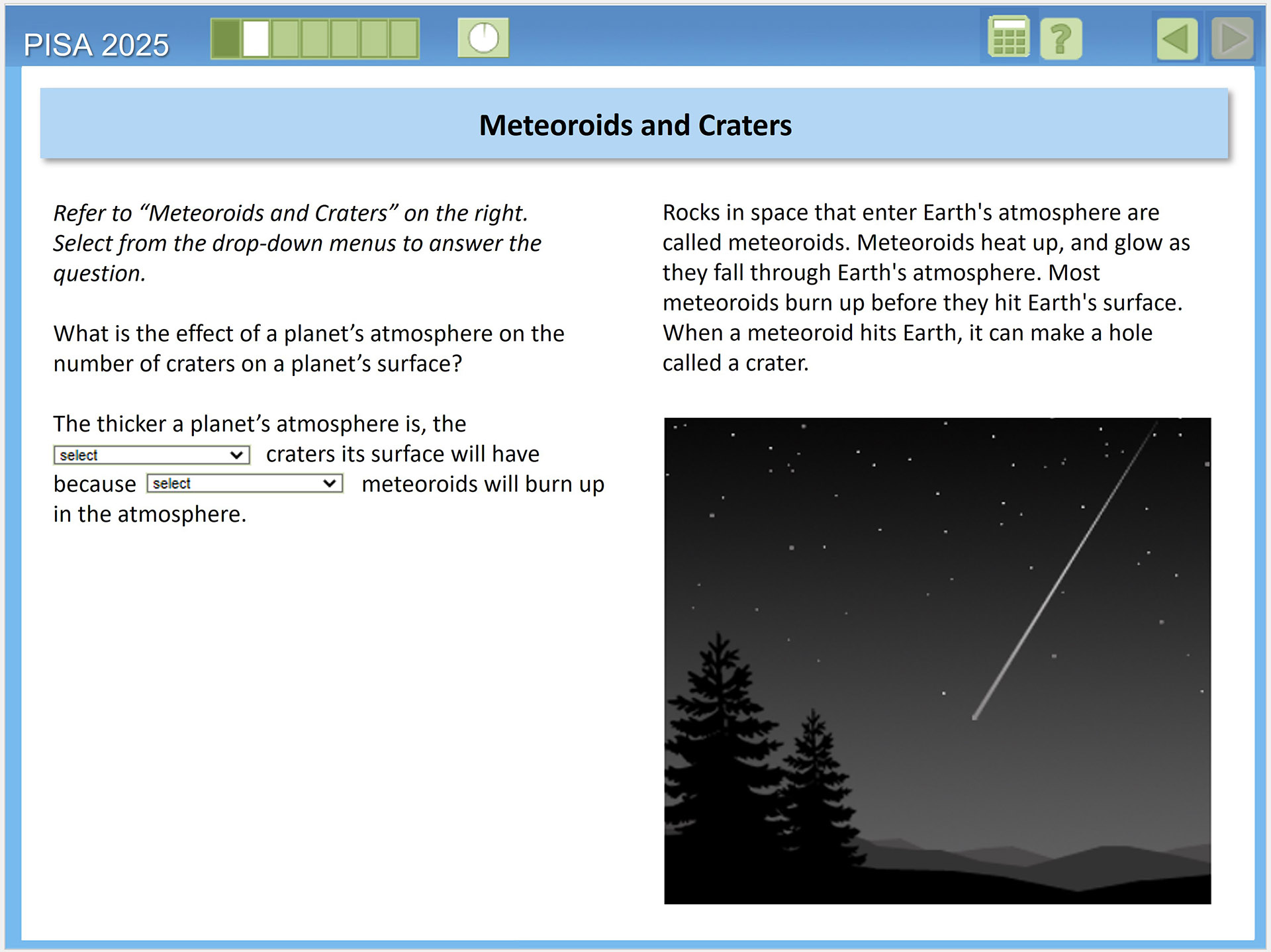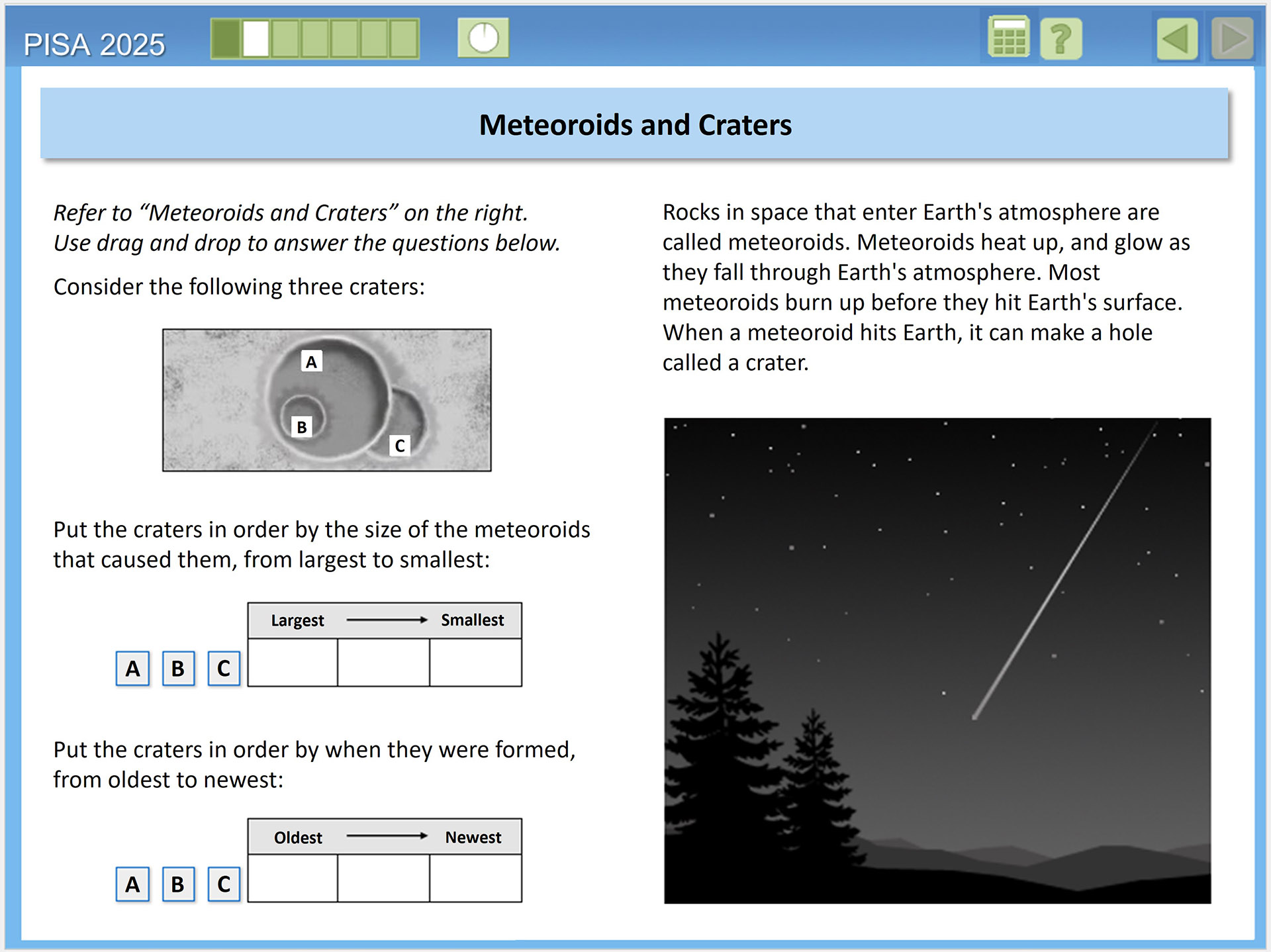Overview
The PISA 2025 science framework defines the competencies that are developed by science education. These are perceived to be a key educational outcome for students, to engage with science-related issues, with the ideas of science, and to use them for informed decision making. The scientific competencies define what is considered important for young people to know, value, and be able to do in situations requiring the use of scientific and technological knowledge.
The science framework describes three science competencies and a subset of three environmental science competencies. It also describes the three types of knowledge required by students for these competencies, the three main contexts in which students will face scientific challenges, and the aspects of science identity that are deemed important.
The PISA 2025 assessment measures how well countries are preparing their students with an understanding of science and how science produces reliable knowledge. This is crucial for citizens who need to make informed personal decisions about science-related phenomena such as health and the environment to engage in action within their families, local communities, and wider societies. It is particularly important in the 21st century when humanity faces an uncertain future as it enters the Anthropocene, an era in which human impact is significantly changing Earth’s systems. A knowledge of science then matters at the individual, regional and global levels as we seek to address these impacts.



